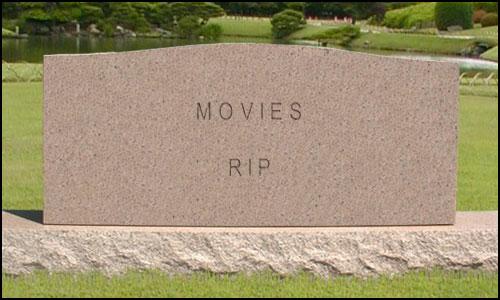REQUIEM FOR THE MOVIES

A decision has been made. I do not intend to watch any more movies. I occasionally used to watch a movie or two. That too will be more infrequent hence forth. The last three movies watched by me have been more than a waste-of-time and made me feel otherwise very strongly. If I don’t take this extreme step I may end up being an optimistic addict, watching one movie after another in the hope of watching one good movie someday.
Once in a theatre, I accept the limitation to move around. But watching a movie (nowadays) gives me the same helplessness as I would be if I left my life at the mercy of destiny; because I am not only restraining myself physically and mentally but emotionally as well. My imagination is limited only to thoughts of what else could have done with the time I am butchering and wallowing in self pity.
So I have decided to take refuge in books. To analyze them at my own pace; the endless options that lay in the next pages making me the ‘script writer’, to internalize the beauty of words, imagine the sets and the characters as if I am the ‘creative designer’ of my own movie and to give my characters their own life and emotions as a ‘director’ would.
So do let me know when there is a movie in town which will turn my opinion around and I will definitely let you know when there is a good book out there to be experienced.


